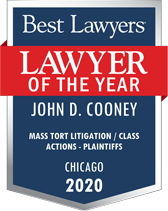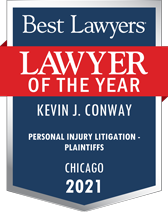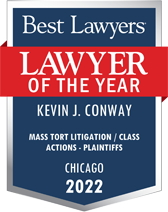Family members who place their loved ones in long-term care often face an emotional decision. One of the biggest worries many families have is whether they are doing the right thing for their loved one. When nursing home abuse or negligence occurs, it is natural that families feel angry, helpless and unsure what to do next.
At Cooney & Conway, our experienced nursing home negligence attorneys specialize in holding facilities and their caregivers accountable for their actions. Our legal team understands the emotional trauma these cases place on families and provide compassionate guidance throughout the legal process.
Call our trusted Chicago law firm for a free case review, or you can alternatively complete our consultation form to discuss your situation with our dedicated nursing home abuse lawyer, who will evaluate your case at no upfront cost.
Call our firm at (800) 322-5573 today to get started
Client Testimonials
How Do I Know If I Have a Nursing Home Negligence Case in Illinois?
It can be difficult to know if what you suspect is actually nursing home negligence or abuse. Families may hesitate to report their suspicions to nursing home staff or call a lawyer until they feel more certain. Unfortunately, this can sometimes be a mistake.
You must be able to establish that the nursing home violated state regulations or breached its duty of care in some way, causing physical or emotional harm, financial damages, or the wrongful death of your loved one.
At Cooney & Conway, we can help you understand if you may have a valid case and if so, what is needed to help build a compelling case of nursing home negligence or abuse in Chicago.
Case Results
-
$875 million
AsbestosSettlement against Pfizer, Inc. after 5 years of litigation.
-
$200 million
AsbestosSettlement in a consolidated asbestos case. At the time, this settlement was the largest in the history of Illinois.
-
$100+ million
Sex AbuseRecovered in sex abuse cases.
What Could My Chicago Nursing Home Abuse Case Be Worth?
Every case involving nursing home injuries is different. The value of a claim varies widely, depending on many factors, including the type of case, the severity of your loved one’s injuries and whether there is sufficient evidence to prove your case.
Compensation You May Be Able to Recover in a Case of Nursing Home Negligence
If your loved one has suffered from nursing home negligence or abuse, you may be entitled to recover various forms of compensation through a personal injury lawsuit. Our experienced nursing home litigation attorneys can help you pursue:
- Medical Expenses: All costs for emergency treatment, hospitalization, surgeries, medications, and ongoing rehabilitation needed to address injuries caused by neglect or abuse
- Pain and Suffering: Monetary damages for physical pain and discomfort experienced by your loved one due to inadequate care or intentional harm
- Emotional Distress: Compensation for psychological trauma, anxiety, depression, and fear resulting from mistreatment
- Wrongful Death: Recovery for funeral expenses, loss of companionship, and other damages if negligence or abuse resulted in death
- Loss of Enjoyment of Life: Damages for diminished quality of life and inability to engage in previously enjoyed activities
- Disfigurement and Disability: Additional compensation for permanent physical changes or disabilities resulting from inadequate care
Our nursing home abuse attorneys will thoroughly investigate your case to identify all compensable damages and pursue the maximum recovery you and your loved one deserve.
Call For a Free Consultation
Can Punitive Damages Be Awarded in Nursing Home Injury Cases in Illinois?
Yes, punitive damages can be awarded in Illinois nursing home injury cases, but only under specific circumstances:
- Recent Legal Expansion: Illinois law now allows families to pursue punitive damages in wrongful death and survival actions related to nursing home abuse, following legislation signed in 2023.
- Exceptional Circumstances Only: Punitive damages are reserved for cases where the nursing home’s conduct was particularly egregious, showing reckless disregard for resident safety or intentional misconduct.
- Evil Motive or Reckless Indifference: Illinois courts require evidence that the nursing home acted with an evil motive or demonstrated outrageous indifference to unreasonably high safety risks.
- Trial Requirement: Punitive damages are only available if your case goes to trial and cannot be obtained through an out-of-court settlement.
- No Statutory Cap: Unlike some states, Illinois does not impose a cap on the amount of punitive damages that can be awarded in nursing home cases.
- Separate from Compensation: It is important to recognize that punitive damages serve to punish the facility and deter future misconduct, rather than compensate the victim for specific losses.
An experienced nursing home abuse attorney can evaluate your specific case to determine if the circumstances might warrant pursuing punitive damages as part of your claim.
Meet Our Attorneys
-
 Read Bio: John D. Cooney
Read Bio: John D. CooneyJohn D. Cooney
Partner | 1954 – 2023
Why Nursing Home Negligence and Abuse Happens in Long-Term Care Facilities
Nursing home abuse frequently stems from systemic issues within the long-term care industry rather than isolated incidents. It is important that you are aware of the warning signs and take preventive measures to protect your vulnerable loved ones:
- Severe understaffing leading to caregiver burnout and rushed, inadequate care
- Insufficient training on proper resident handling, dementia care, and abuse prevention
- Inadequate screening during hiring processes, allowing potentially dangerous employees access to vulnerable seniors
- Corporate profit prioritization over resident well-being and appropriate staffing levels
- Poor management oversight and lack of proper supervision during all shifts
- Insufficient wages causing high staff turnover and reliance on inexperienced caregivers
- Neglected facility maintenance, creating unsatisfactory living conditions
- Limited accountability due to a lack of state oversight and inspection procedures
- Social isolation of residents, making them easy targets for exploitation
- Cognitive impairments that prevent victims from reporting or being believed when reporting abuse
Free Consultation
"*" indicates required fields
What Legal Rights Do Nursing Home Residents Have in Illinois?
Illinois law provides nursing home residents with legal protections to protect their autonomy and physical well-being throughout their stay in long-term care facilities. When you recognize violations of these rights, take appropriate legal action when facilities fail to meet the required standards of care. Nursing home residents have the right to:
- Be free from all forms of abuse, neglect, exploitation, and misappropriation of property
- Personalized medical care and appropriate treatment plans
- Privacy during personal care, medical procedures, and communications
- Manage personal finances or designate a trusted representative for financial matters
- Access and review all medical records and care documentation
- Refuse medications or treatments after being informed of potential consequences
- File complaints without fear of retaliation or discrimination
- Receive visitors at reasonable hours and maintain contact with family members
- Participate in social, religious, and community activities of their choosing
Injured?
Contact Cooney & Conway
You don’t have to face powerful corporations or insurance companies alone. If you were injured due to someone else’s negligence, you have the legal right to pursue compensation—and experienced attorneys to help you fight for it.
Cooney & Conway has represented injury victims across the nation for over 65+ years. Our dedicated legal team is committed to securing justice and meaningful results for every client. You pay nothing unless we win your case.
Call (800) 322-5573 to get legal help today..

What Are the Signs of Nursing Home Abuse?
Recognizing the signs of nursing home abuse requires careful observation of both physical and behavioral changes that may signal mistreatment. Family members should trust their instincts when something seems wrong and document any concerning patterns during visits with their loved ones.
- Unexplained bruises, welts, cuts, burns, or restraint marks on wrists or ankles
- Sudden weight loss, malnutrition, or dehydration despite adequate resources
- Pressure sores (bedsores) or poor personal hygiene
- Withdrawn behavior, depression, anxiety, or unusual fearfulness around certain staff
- Unexplained financial transactions or missing personal belongings
- Overmedication, excessive sedation, or sleep disruptions
- Unsanitary or unsafe living conditions in the facility
- Staff refusing to leave residents alone with visitors
- Frequent falls or injuries explained as “accidents”
- Sudden changes in behavior, including agitation, confusion, or regressive behaviors
- Sexually transmitted infections or genital injuries
- Delayed medical care for injuries or deteriorating health conditions
What Should I Do if I Suspect Nursing Home Abuse?
When you take immediate action when suspecting nursing home abuse, you can protect your loved one from further harm and preserve evidence for a potential legal claim. The following steps outline how to approach suspected abuse in long-term care facilities.
Ensure Your Loved One’s Immediate Safety
Your relative’s safety should be the primary concern when nursing home neglect or abuse is suspected.
Steps you can take to ensure your loved one’s safety:
- Consider installing a small, permitted camera in your loved one’s room.
- Speak privately with your family member about their experiences, asking direct but sensitive questions about their care and treatment by staff.
- Increase the frequency and unpredictability of your visits, arriving at different times and on different days.
- If you believe your relative faces immediate danger, consider temporary relocation to a hospital or alternative facility while your concerns are investigated.
Trust your instincts; if something feels wrong, take proper safety measures.
Call For a Free Consultation
Notify the Proper Authorities About Your Concerns
If you are concerned your loved one faces immediate jeopardy, it is important to notify the facility’s administration and other authorities who can investigate.
Facility Administration
Submit a formal complaint through email or writing to the nursing home administrator, director of nursing, and corporate ownership, if applicable. Detail specific incidents with dates, times, and names of staff involved when possible.
Request a written response within a specific time limit, typically 3-5 business days. Insist on a face-to-face meeting with the administration to discuss your concerns and their proposed resolution.
Document all communication, including those who attended meetings and what promises were made. Administrative complaints create a paper trail demonstrating the facility knew about problems, which could be critical in establishing liability.
Adult Protective Services and the Proper Authorities
Illinois law mandates reporting of suspected elder abuse to appropriate government agencies for independent investigation. Contact the Illinois Department of Public Health’s Nursing Home Website to file an official report detailing your concerns. File an additional report with the Illinois Department on Aging’s Adult Protective Services, which handles elder abuse cases in all settings.
Find Local Ombudsman and Adult Protective Services
The Illinois Long-Term Care Ombudsman Program provides dedicated advocates who investigate complaints and help resolve issues for nursing home residents. Contact your regional Ombudsman through the Illinois Department on Aging website to connect with a representative assigned to your loved one’s facility. These professionals understand nursing home regulations and resident rights and have the legal authority to access records and conduct unannounced facility visits.
Adult Protective Services offers additional resources, including emergency interventions when necessary to protect vulnerable seniors. These government advocates provide valuable services at no cost to residents or their families and independently from the nursing home industry.
Nationally Recognized Mesothelioma & Catastrophic Injury Attorneys




Types of Nursing Home Abuse Cases We Handle
Nursing home abuse manifests in various forms, each causing distinct types of harm to vulnerable residents and requiring specific evidence to establish legal claims. Understanding these different categories helps family members identify warning signs and take appropriate action before serious or irreversible damage occurs.
Physical Abuse
Physical abuse involves any non-accidental use of force that causes bodily injury, pain, or impairment. This includes, but is not limited to:
- Hitting
- Slapping
- Pushing
- Shaking
- Inappropriate use of physical restraints on nursing home residents.
Illinois law establishes strict standards prohibiting physical violence against residents, with potential criminal penalties for perpetrators. Warning signs include:
- Unexplained bruises
- Welts
- Fractures
- Burns
- Broken personal items, such as eyeglasses
Facilities are responsible for staff actions and failure to protect residents from harm by other patients, visitors, or unauthorized individuals. Comprehensive medical documentation of injuries is essential to prove these claims.
Psychological or Emotional Abuse
Emotional abuse includes mental harm based on the act of:
- Verbal assaults
- Threats
- Humiliation
- Intimidation
- Isolation
Including other behaviors that cause psychological distress to residents. These cases often lack physical evidence but behavioral changes, witness testimony, and psychological evaluations help establish emotional harm. Signs include
- Unusual withdrawal
- Depression
- Agitation
- Fear around specific staff members
Illinois recognizes psychological abuse as a serious violation of resident rights, warranting compensation when facilities create or permit hostile environments.
Financial Exploitation
Financial abuse involves unauthorized or improper use of a resident’s assets, property, or benefits for another person’s advantage. Common examples of financial abuse include:
- Theft of personal items
- Forging signatures
- Manipulating residents into changing wills or powers of attorney
- Unjust charging principles
Red flags include unexplained financial transactions, missing valuables, sudden changes to legal documents, or unpaid bills despite adequate resources. These claims require financial records and could involve forensic accounting to document improper transactions. Illinois provides penalties for the economic exploitation of seniors, with potential triple damages in civil cases.
Sexual Abuse
Chicago nursing homes conduct thorough background checks of all employees and implement strict supervision policies to prevent sexual abuse. These claims typically involve both criminal prosecution and civil liability, with substantial damages available to compensate for psychological trauma. Sexual abuse includes
- Unwanted touching
- Rape
- Sexual harassment
- Coercion
- Sexual activity with residents unable to provide informed consent due to cognitive impairments
These cases require particularly sensitive handling, with immediate medical examination and evidence collection including:
- Unexplained genital injuries
- Sexually transmitted infections
- Torn or bloody undergarments
- Extreme agitation during bathing or dressing
Neglect and Abandonment
Neglect occurs when facilities fail to provide basic necessary care. Illinois regulations establish specific staffing ratios and care standards that facilities must maintain. Neglect cases often involve systemic failures rather than isolated incidents, requiring extensive documentation of care deficiencies over time. These claims frequently address understaffing as a root cause of substandard care. If you suspect neglect in your loved one’s nursing home, look for signs including:
- Dehydration
- Malnutrition
- Untreated bedsores
- Poor personal hygiene
- Unsafe living conditions
- Medication errors
Medical Abuse and Medication Errors
Medical abuse involves intentional or negligent healthcare practices that cause harm, including:
- Medication errors
- Unnecessary treatments
- Withholding needed medical care
Facilities are expected to maintain accurate medication administration records and proper treatment procedures. Common violations include administering medications to manage behavior rather than for therapeutic purposes, using medications without appropriate consent, or failing to monitor adverse reactions. Families suspecting medical abuse should watch for signs, including
- Rapid health deterioration
- Over-sedation
- Unusual side effects
- Unexplained medical complications
These claims often incorporate elements of medical malpractice alongside nursing home negligence, possibly requiring expert testimony to establish appropriate standards of care and causation between improper medical management and resulting harm.
Results Speak Volumes
$7 Billion
Recovered
5 Star
Rated
65+ Years
In Business
Who May Be Liable for My Nursing Home Abuse or Neglect Damages?
Nursing home abuse cases often involve multiple responsible parties who may share liability for the damages your loved one suffered. Each potential defendant helps your attorney pursue all available avenues for compensation.
The Nursing Home Facility
The nursing home facility typically bears primary responsibility for abuse and neglect that happens on the property. Illinois law holds these institutions directly accountable for maintaining proper staffing levels, adequate training programs, appropriate security measures, and safe living conditions. Facilities must adhere to state and federal regulations regarding resident care standards, and violations of these requirements establish grounds for liability.
Individual Staff Members
Direct caregivers who commit acts of abuse or neglect face personal liability for their actions. This includes certified nursing assistants, nurses, orderlies, maintenance staff, administrative personnel, and those interacting with residents. Identifying specific staff members involved strengthens your claim and prevents facilities from shifting blame.
These individuals may be held responsible for:
- Physical abuse
- Emotional mistreatment
- Financial exploitation
- Sexual assault
- Medication errors
- Failure to provide necessary care
Management and Administrators
Nursing home administrators, directors, and managers hold responsibility for hiring qualified staff, implementing proper training, ensuring adequate supervision, and responding appropriately to abuse reports. Their failure to perform background checks, address known problems, investigate complaints, or maintain appropriate staff-to-resident ratios constitutes negligence. These decision-makers often create conditions that allow abuse to occur or continue, making them potentially liable parties.
Call For a Free Consultation
Corporate Owners and Parent Companies
Many nursing homes operate as part of larger corporate chains with parent companies that establish operational policies, budgeting priorities, and staffing models. These corporations may cut corners to maximize profits at the expense of resident safety. Your attorney can investigate corporate structures to identify parent companies and holding groups that exercise control over facility operations. These entities often have substantial insurance coverage and assets that can satisfy significant damage awards when liable for damages.
Third-Party Contractors
External service providers who work in nursing homes, including food service companies, cleaning crews, maintenance contractors, and security firms, may share liability for resident injuries. These contractors must maintain appropriate safety standards while performing their duties. Additionally, agencies that supply temporary nursing staff or other personnel could bear responsibility for proper screening and qualification verification of their employees who work in nursing facilities.
Medical Professionals
Doctors, physician assistants, therapists, and other healthcare providers who treat nursing home residents may be liable for injuries resulting from improper care, medication errors, misdiagnosis, or failure to address obvious signs of abuse or neglect. These professionals have independent duties to their patients regardless of their employment relationship with the facility. Medical malpractice elements often overlap with nursing home abuse claims, creating additional avenues for compensation from separate insurance policies.
Nationally Recognized









Suspect Abuse In Your Loved One’s Nursing Home? Contact Our Trusted Law Firm
At Cooney & Conway, our dedicated nursing home abuse lawyers team fights relentlessly for nursing home abuse victims throughout Chicago and Illinois. We investigate every case thoroughly, document evidence, and pursue every responsible party to maximize your potential recovery. Our attorneys understand these cases’ emotional toll on families and provide compassionate guidance while handling all legal complexities.
Schedule your free consultation today by calling our office or completing our online form—we charge no upfront fees; we only win when you do.
Need Legal Help? Call Our Trusted Law Firm Today. (800) 322-5573



